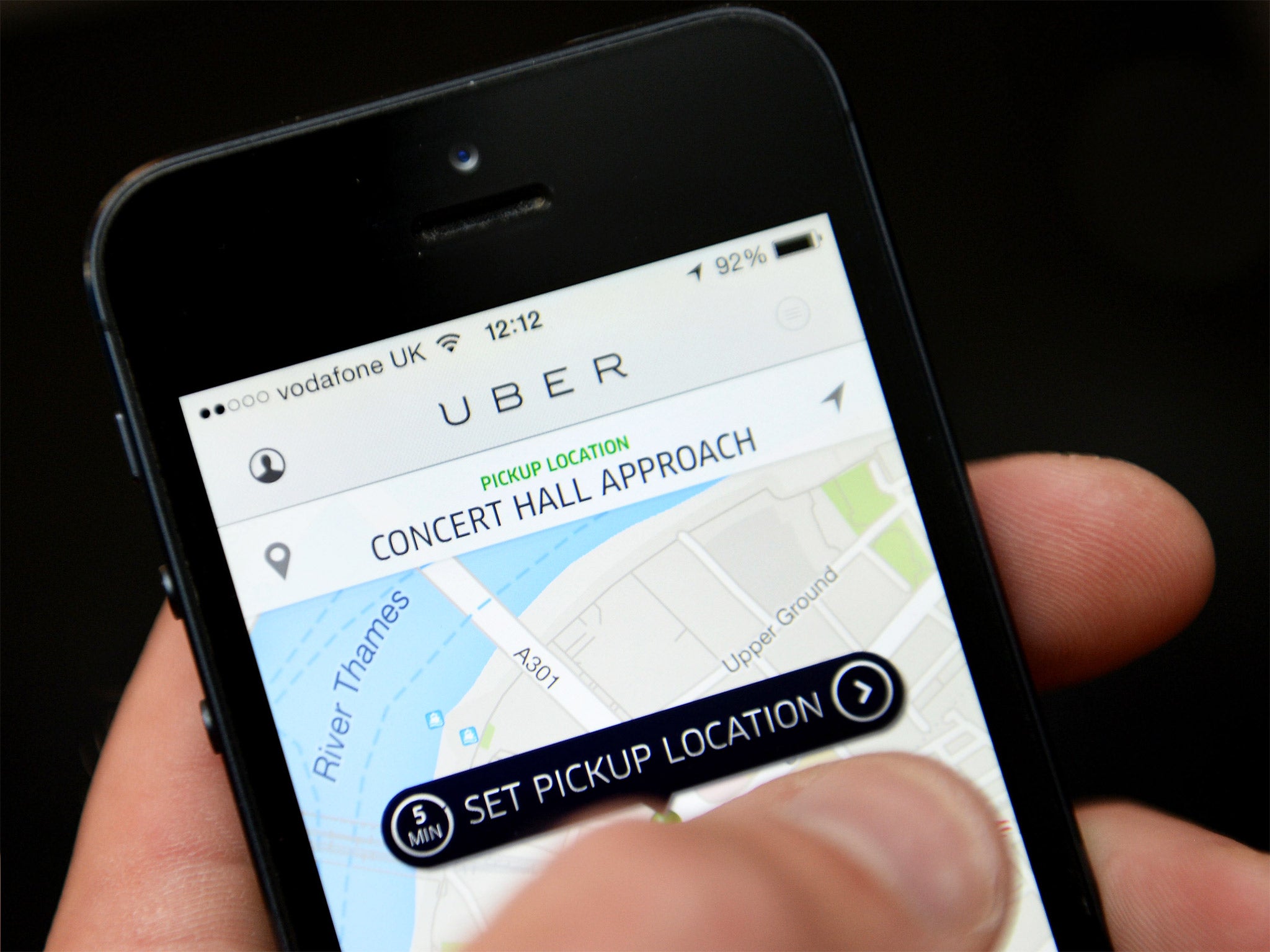The Independent's journalism is supported by our readers. When you purchase through links on our site, we may earn commission.
This is why I deleted Uber from my phone, and why you should too
What makes Uber different from other companies is that being a jerk is the company's business plan

I deleted Uber from my phone. It had to go. The reasoning went like this: pro – sometimes useful, cheaper than taxis at non-peak hours. Con – evil face of 'disruptive' modern capitalism.
Deleting stuff from my phone is a vicious process that leaves behind few casualties. Which actually makes it a lot like Uber's business practice. Uber have allegedly set out to sabotage rivals like Lyft by poaching their drivers, ordering and then cancelling Lyft rides to make Lyft drivers unavailable to real customers, and approaching their investors. This last tactic was revealed by CEO Travis Kalanick's bragging in a profile in Vanity Fair: “We knew that Lyft was going to raise a ton of money,” he said. “And we are going [to their investors], ‘Just so you know, we’re going to be fund-raising after this, so before you decide whether you want to invest in them, just make sure you know that we are going to be fund-raising immediately after.’ ”
The company's latest PR disaster also concerns comments Uber's senior staff have made publicly. Senior vice president Emil Michael suggested that Uber might spend “a million dollars” recruiting people to dig up and publish “dirt” - “your personal lives, your families” - on unhelpful journalists, and in particular on Sarah Lacy, who has been a vocal critic of Uber's misogynistic culture. A culture which includes Travis Kalanick revealing that he sometimes refers to the company as “boob-er” in a GQ profile, a fond boast about how many women Kalanick can now sleep with. These are not gaffs: these are planned remarks at PR events that are intended to make Uber look good.
So Uber is run by self-aggrandising fratboy jerks who appear to value earning money over paltry concerns like women's rights, customer safety, or privacy. Plenty of companies are run by jerks, but what makes Uber different is that being a jerk is the company's business plan.
Uber is a proudly 'disruptive' company. This is the current buzzword for innovation: incumbents, like taxi drivers, are 'disrupted' by entrants, like Uber, who have new ideas that give them a competitive advantage. In Uber's case, these new ideas, on top of the aggressive business tactics outlined above and increasingly predatory pricing, are a really good app that makes getting a ride easy and convenient and exploiting its workforce.
Uber is part of an increasing trend towards the casualisation of labour. This means fewer full time jobs, uncertain hours, less income, and less regulation. Recruiting a workforce from the sharing economy is a way companies can shift significant costs from themselves to employees, and to society more broadly.
In truth, there's not much I, or you, or anyone else who isn't a government regulator can do about casualisation. It's hard to blame casual employees, because they need the money. It's hard to blame consumers, because casualisation makes services cheaper and more convenient. It's hard to blame businesses, because of course they want to reduce costs.
Deleting Uber from my phone is a first step, a token gesture, a tiny symbol of resistance. Uber's reputation may become so toxic that they never dominate the world, but it seems certain that a company offering Uber-style services will. Maybe tiny acts of resistance right now can help make that eventual corporate entity be slightly less evil. So I've uninstalled Uber. But then, that was easy: I already cycle everywhere anyway.
Join our commenting forum
Join thought-provoking conversations, follow other Independent readers and see their replies
Comments
Bookmark popover
Removed from bookmarks